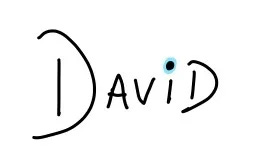It was a Friday night, and I was slouched in the back of the company car service, running on empty but wired from the week. I’d just landed back at Chicago’s O’Hare after a long haul from Tel Aviv—booked in coach thanks to a mix-up from my assistant. Half the flight was spent with a teenage girl slumped over, fast asleep on my shoulder. I wasn’t especially gracious in those days. I didn’t complain, but flying back with “the masses” felt beneath me.
I was an executive, after all.
Nowadays? I’d be simply grateful to make it home safely and nothing more. But that trip turned out to be more than just safe—it was pivotal. The opportunity I was working on, which I had brought in through a personal relationship, ultimately outbid a well-known digital agency for a major assignment. That’s another story, maybe for another newsletter...
As the black Lincoln Town Car pulled away from the terminal, I fired up my phone. Notifications lit up—texts, voicemails, missed calls. Several were from our CEO. While we were closing new business in the Middle East, something big had landed in Chicago. A major airline. Not just the company, but the incoming CEO himself. He’d called our main line, got patched to our office president, and dropped a live opportunity in our lap.
By the tone of the messages, it was clear: cancel the weekend. This was a pitch—and not just any pitch. The kind that clears your calendar.
The team camped in the glass-walled conference room with a view of Chicago’s skyline. On cloudy days, the AON Center looked like it was sliced in half by fog—we were literally working in the clouds. We built slides. Refined strategy. Crafted a narrative: rehearsed lines, debated points, pivots. We didn’t just want to win. We had to.
Monday morning, we showed up ready. The airline CEO entered the boardroom. We listened first. Then we pitched. The best pitches always shift into dialogue. This one did. And it was a rich and honest conversation about leadership, trust and business challenges.
By Tuesday, we got the call—we won.
The urgency was real. They wanted to start that afternoon.
A few of us regrouped back at the office. Ideas started flying. I jotted down the bones of a concept and gave it a name. That name stuck, and I wrote a brief to support it. It helped anchor nearly two years of work, shaping the digital product we built, from strategy to execution. It was one of the most fulfilling projects of my career.
But that’s not the part of the story I think about most.
Right after the pitch, I walked back to our office. And before heading upstairs, I ducked into the men’s room. Twenty minutes later, it hit me… I’d left a copy of our pitch deck behind—a sensitive document, in a shared building full of competitors.
I ran back.
Nothing. It was gone.
My heart pounded. I knew how it happened; jet lag, adrenaline, three straight days of grinding. Still, it was a serious lapse.
I walked straight into the office of our pitch lead—our regional #2 leader—and confessed. Full transparency.
His response?
“Don’t sweat it… It happens to the best of us.”
No drama. No finger-pointing. Just grace. And thankfully, the deck never resurfaced. The project progressed, delivered results, and garnered accolades. It felt like a high point—my human misstep and all.
The low came later. A couple of years down the line, I found myself on the wrong side of a layoff spreadsheet just as the pandemic was taking off. I thought about that airline pitch, amongst other pre-pandemic career highs. About how good we were. And about how quickly wins fade in places where you’re only as good as your last one.
Our wins don’t always save us. But they do shape us. And so do the stumbles, and the lessons we learn from both.
We carry those with us—everywhere we go, flying high and low.
Visually yours,



